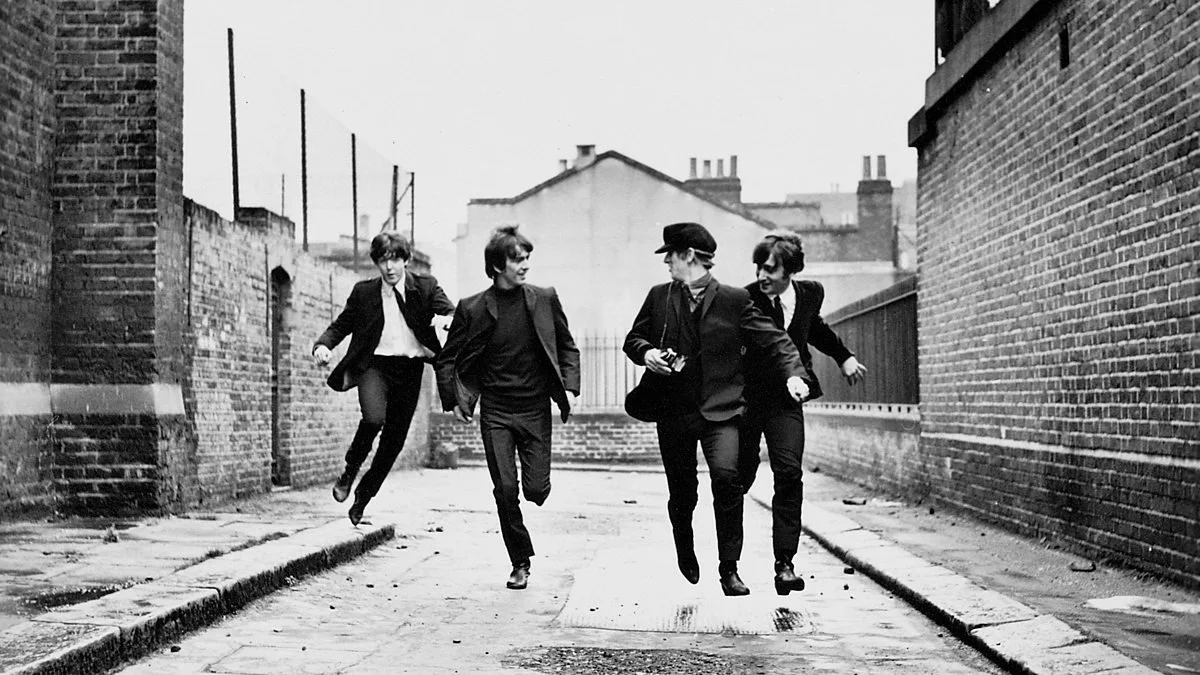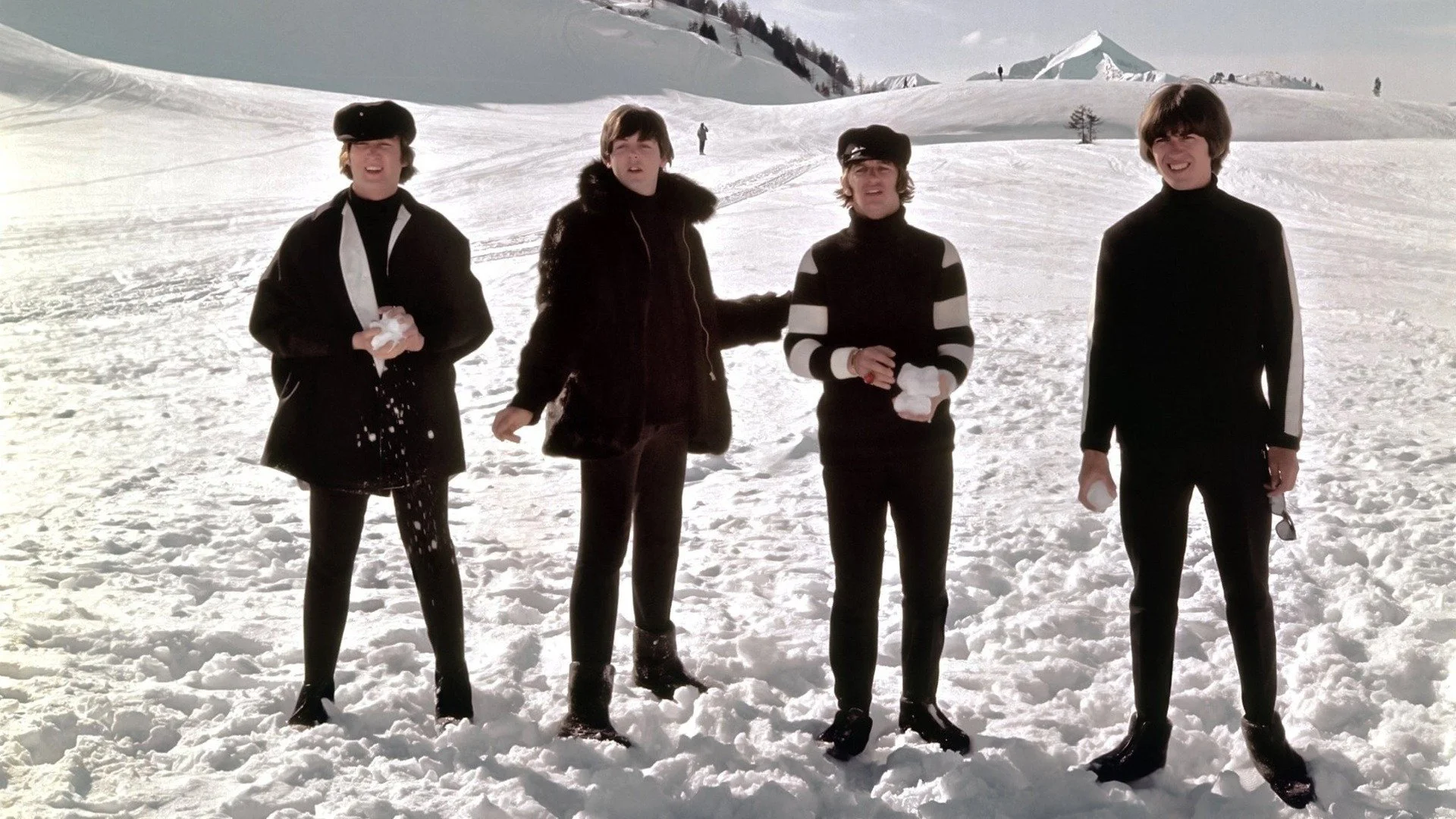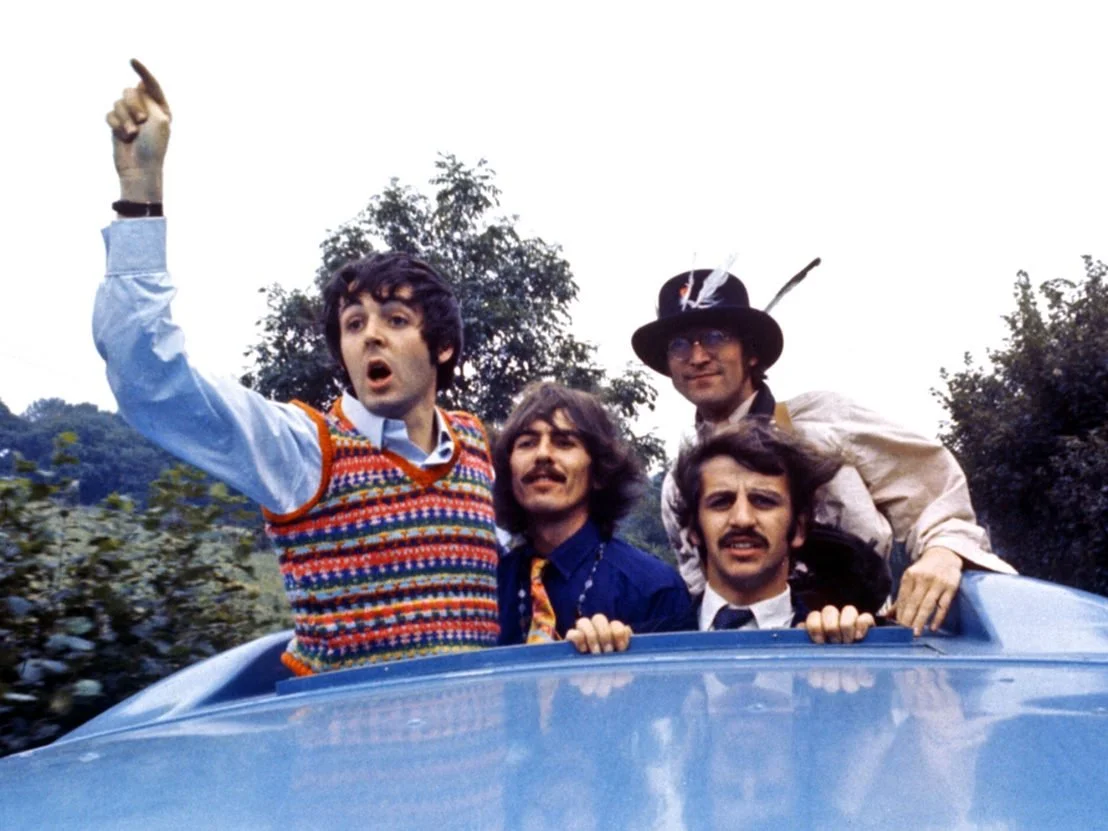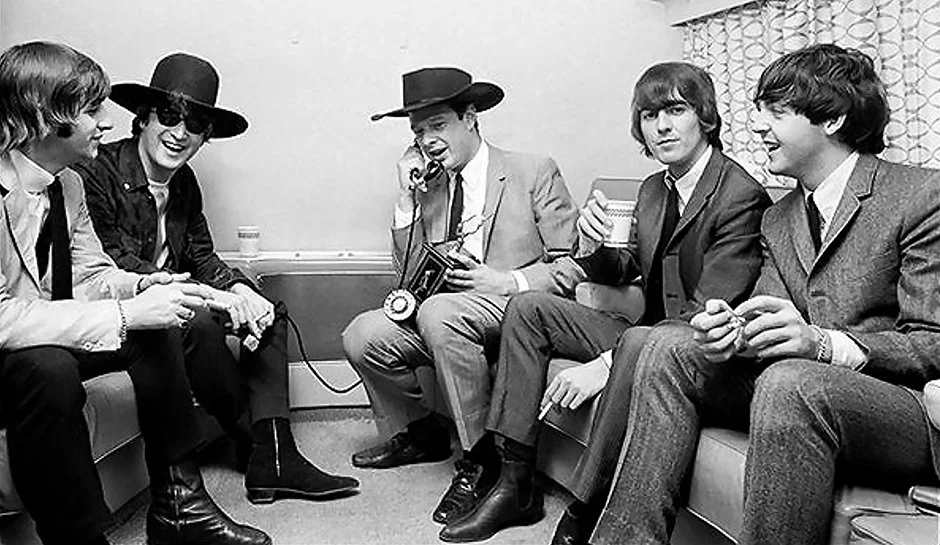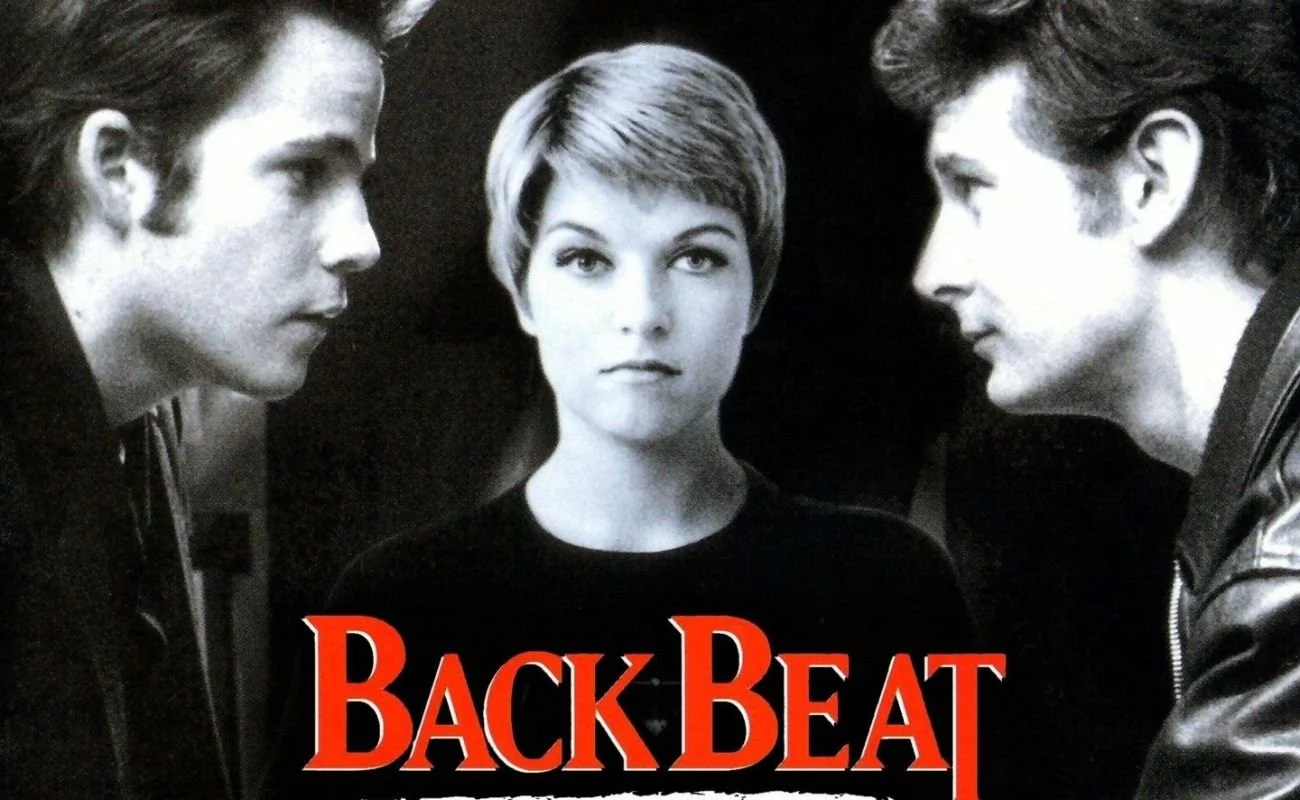A Magical Mystery Tour Across the Beatles Cinematic Universe
By Film and TV Editor Mia Tobin Power
It’s been a few weeks now since director Sam Mendes (of 1917 and Skyfall fame) announced that he will be making 4 interconnected Beatles biopics - all due for release in 2027 - but I’m still thinking about it. Mendes strikes me as a strange director to helm these films. I think that when making a Beatles film, you have to be willing to get a bit weird with it, and I don’t know if Mendes is that guy. Regardless, the internet was in a flurry of excitement at the announcement of what many have termed the ‘Beatles Cinematic Universe’. To which my reaction was: there’s already a BCU. The Beatles starred as themselves in 4 feature films, and there are already a good few documentaries and biopics about them (well, really about John, and sometimes Paul). With that in mind, I thought it would be fun to celebrate by going on my own “Magical Mystery Tour” through the BCU. Here’s what I learned.
A Hard Day’s Night - 1964
From A Hard Day’s Night dir. Richard Lester
Let’s start with the centrepieces of the existing BCU: the films the Beatles starred in. (Disclaimer: I couldn’t bring myself to watch Yellow Submarine, even as research for this article. I only have so many words and hours to spare.) A Hard Day’s Night (1964) is the first film the Beatles starred in, and easily the best. It has quite a simple premise: set over two days, it depicts the Beatles (along with Paul’s grandfather) getting up to mischief while preparing for a TV appearance. The film has a distinctive and odd tone, and it’s really a screwball comedy. Its success relies on the Beatles’ charisma, chemistry, and comedic skills, and they more than deliver. It also works because of Wilfrid Brambell’s incredible performance as Paul’s grandfather. At the start of the film, Paul describes him as a ‘villain’ and a ‘mixer’, which couldn’t be more accurate - he causes endless chaos. I particularly love the early scenes on the train, where Paul’s grandfather is introduced to the other Beatles, and where the four lads torment another passenger. The scene where George mistakenly stumbles into a production office and is taken for an actor is also a highlight.
Help! - 1965
From Help! dir. Richard Lester
On the other hand, Help! (1965) is a strange one. It tries to replicate the hijinks of A Hard Day’s Night while imposing a James Bond-esque cat-and-mouse plot over it. The spy thriller part of this film doesn’t really work for me - it’s based on outdated, very 1960s ideas about Eastern religion and spirituality. But I would say it’s worth watching for how fun the Beatles-focused segments are, especially the scenes set in their house, which is actually four separate houses combined into one, with a separate area for each band member.
Magical Mystery Tour - 1967
From Magical Mystery Tour dir. the Beatles
Magical Mystery Tour (1967) is also a strange one. It was critically reviled when it premiered on BBC on St Stephen’s Day. Watching it now, I don’t think it’s terrible - it’s not good - but I just find it boring more than anything else. I think the soundtrack album is underrated, though. Among other great songs, it has my beloved “Your Mother Should Know” and the classic “Strawberry Fields Forever”.
The Beatles: Eight Days a Week – The Touring Years - 2016
From The Beatles: Eight Days a Week - The Touring Years dir. Ron Howard
Now, to the documentaries. I really like Ron Howard’s The Beatles: Eight Days a Week - The Touring Years (2016). Beatlemania was a truly unique phenomenon, to which we haven’t really seen a 21st-century counterpart, and this film gives you a good insight into it. Paul’s excellent book of photographs, 1964: Eyes of the Storm, is a good companion to this film.
The Beatles: Get Back - 2021
From The Beatles: Get Back dir. Peter Jackson
Peter Jackson’s The Beatles: Get Back (2021) is a special piece of documentary filmmaking. I’d argue that anyone with even a slight interest in the Beatles could find something to love in it, because it’s such a multi-dimensional and fascinating piece of work. In 1969, director Michael Lindsay-Hogg recorded over 60 hours of footage for what became his Let it Be documentary; Jackson and his editors went through this footage and edited it into a nearly 8-hour miniseries. Get Back achieves what other Beatles documentaries and biopics strive for: it gives you a real insight into their minds and creative processes. My favourite moments are the quiet ones, where you see them as friends, and as just some guys in their mid-20s rather than one of the most significant bands of all-time: Paul climbing on the scaffolding after George quits; the jokes they make about how they’d still be answering their fan mail even if they were in prison; and, of course, how they respond to Lindsay-Hogg’s insistence that they perform the concert in an amphitheatre in Libya.
The Hours and Times - 1991 and Two of Us - 2000
From The Hours and Times dir. Christopher Münch
I want to start my exploration of Beatles biopics with what I consider the ‘fanfiction biopics’: The Hours and Times (1991) and Two of Us (2000). Both of these take moments from the Beatles’ past and imagine how they could have happened, namely, John and Brian Epstein’s trip to Barcelona in 1963 and John and Paul’s meeting in New York in 1976. These films are fascinating cultural documents because they really are fanfiction - it’s purely a creative exercise on the filmmakers’ part. I think The Hours and Times is a better film, and maybe a more unique one: it’s only 57 minutes long and it’s mainly told from Brian’s perspective, imagining his psychology and how he might have seen his relationship with John. Two of Us, though, is definitely the weirder film. It’s directed by Michael Lindsay-Hogg of all people, which adds a whole fascinating layer to it. It’s different to other biopics in that it was made by someone who actually knew the Beatles. I think both of these films are worth watching; if for nothing else, then to appreciate how mad it is that Two of Us exists, and that Paul liked it - he said about it, ‘I wish that had happened’!
Backbeat - 1994
From Backbeat dir. Iain Softley
3 years after The Hours and Times, Ian Hart played John Lennon again in Backbeat (1994), a dramatisation of the Beatles’ residencies in Hamburg at the beginning of their career. This film is mostly focused on Stuart Sutcliffe (who played bass in the Beatles at the time) and his relationships with John and the German photographer Astrid Kirchherr (who is played by Sheryl Lee, aka Laura Palmer from Twin Peaks). Backbeat is generally considered one of the best Beatles biopics, but I don’t think it’s a very good film. When the plot veers away from the Beatles as a group to focus on Stuart, it loses me. It’s interesting that Hart played John twice despite the fact that he doesn’t look that much like him; I can’t say for sure if his performance is good, but I enjoyed watching it. My favourite scene is one that, all of a sudden, is shot and acted exactly like a soap opera. John tells the rest of the band that he’ll quit if they force Stuart out, at which point Paul asks what’s going on between him and Stuart. John interprets this as Paul saying he’s queer, and the two of them start shouting at each other, with George (played by an actor who looks nothing like him) in the middle of it, saying with the flattest delivery I’ve ever heard, ‘He never said that.’ Filmmakers’ interest in adding queer subtext - or text, in some cases - to their Beatles biopics is endlessly intriguing to me. This scene is a real gem, and I encourage you to seek it out. You can give the rest of the film a miss though.
Nowhere Boy - 2009
From Nowhere Boy dir. Samantha Louise Taylor-Johnson
I wouldn’t recommend Nowhere Boy (2009) either. All films purporting to be Beatles biopics are really just John Lennon biopics in disguise, but at least Nowhere Boy is upfront about it. It’s about John’s teenage years, focusing on his relationships with his mother and the aunt who raised him. This story is interesting enough, but it plays out in a very standard, emotionally manipulative biopic way. The film gets a bit more exciting when John gets into music, starting his band the Quarrymen and eventually meeting Paul and George. But these sections still leave a bit to be desired. Aaron Taylor-Johnson is perfectly fine as John, and Kristin Scott Thomas is genuinely good as his aunt Mimi, but something is off about Thomas Brodie-Sangster’s performance as Paul, and I didn’t find his scenes with Taylor-Johnson particularly convincing.
Nowhere Boy is a good case study in the features of a Beatles biopic: it will be most interested in John at the cost of everyone else and see him as a great tragic figure; it won’t represent Paul accurately, and he’s mostly just there to cause conflict for John or for John to bounce off of (true to a lesser extent in Two of Us, where Aidan Quinn’s performance is quite good); George will have two lines max and will look completely different to the real George; Ringo will be lucky to be in it at all. Hopefully Sam Mendes can change this, but I don’t have high hopes. On this journey, I learned that Mendes’ project is basically impossible. These biopics are roughly 90-minute films about a few events in the Beatles story - how can Mendes make a film about the Beatles’ entire career from an individual member’s perspective, let alone include the key events from their personal lives too? After all, Peter Jackson originally planned Get Back as a film, before realising that time constraints would only limit the documentary’s potential. I’m apprehensive, but I also can’t wait to find out.


